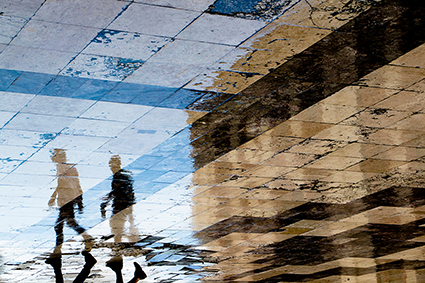Freedom of religion vs. public health
Freedom of religion vs. public health
Efforts to stem the spread of the novel coronavirus and protect public health have resulted in unprecedented restrictions on religious worship. While most religious organisations, especially in earlier phases, supported government bans on worship, many came to question the rationality behind blanket bans and attempted to negotiate compromises out of the restrictions. Many felt ignored by governments and took to the courts for recourse and have won, in countries like Germany and France, notable victories.
Coronavirus effects on religious freedom
As the novel coronavirus spread throughout the world, infecting millions and killing hundreds of thousands, governments scrambled to protect public health by imposing varying levels of lockdowns and social distancing restrictions. Beginning in Italy, measures were eventually adopted by almost all European nations, in many cases curbing political liberties at a scale and at a speed rarely, if ever, previously reached. The measures particularly affected religious worship, which is often built around socializing and public gatherings. The distancing procedures not only altered normal weekly worship, but also significantly altered plans for Easter and Ramadan celebrations and practices, forcing most to move online. Many religious organisations accepted and supported the temporary curbs on worship, seeing the public health necessity. That being said, some religious institutions maintained that it was illegal for governments to restrict religious worship to the extent that they did. Earlier in the pandemic, several newsworthy religious challenges originated in the United States, with pastors in some southern states refusing to cease religious practices and mounting legal cases against the social distancing orders. As lockdowns spanned from days into weeks, several European religious groups began to grow restless with the restrictions.
Le Figaro conducted research in mid-May, examining 15 European countries and the effects their responses had on religions. Of the countries studied, only two, Spain and Poland, never officially ordered the ban on public worship.[1] That being said, the social distancing requirements effectively banned such activities. Most of the other countries, like France and Germany, allowed churches to remain open, but without the ability to host public worship. As countries saw the peak of the virus pass, several, like Monaco, Croatia, and Slovakia were quick to allow religious worship to resume, looping religious worship in with other reopenings. Other countries set dates for religious worship to resume in their phased reopening plans, like Austria, Italy, and Portugal. For most of these countries, though there was criticism of religious restrictions, the governments eventually opened up services on their own fruition. In other places, though, religious groups and worshippers sought and won earlier reopenings via the judicial system.[2]
Legal challenges and victories
In Germany, for instance, Angela Merkel’s government was criticised in late April for planning the reopening of many stores and shops, but neglecting religious worship. The criticisms eventually led to a legal challenge from a Muslim group in Lower Saxony, who objected to the government’s blanket ban on religious worship, believing exceptions should be possible. The case ultimately reached the Federal Court of Justice, Germany’s highest court, which struck down the blanket ban on April 29, calling it a “serious infringement of religious freedom.” The court allowed for religious institutions to earn exceptions to the rule, as long as extensive health precautions were taken by the respective places of worship.[3]
The German Court’s decision increased already growing pressures in France, where a similar blanket ban existed. The French government adopted a strict stance on religious worship from a public health standpoint early on, as many of France’s earliest Covid-19 cases were traced to a series of evangelical meetings in Mulhouse in February. Ultimately, 2,500 cases worldwide would be attributed to the gatherings.[4] Nonetheless, religious groups in France have tried to argue for the ability to be granted an exception from the ban. Additionally, in early May, a series of Catholic Bishops proposed a reopening scheme to the government, but were denied the opportunity and instructed to wait until June 2. The French government began relaxing some of the lockdown measures in early May but bans on religious worship remained unaffected. This led to further challenges and, ultimately, a review of the policy by the Council of State, France’s highest administrative court. On May 18, the Council of State, like the German Federal Court of Justice, struck down the blanket ban, finding it “disproportionate in nature,” and the source of “damage that was seriously and manifestly illegal.” Some politicians, like the Republican’s Bruno Retailleau, welcomed the decision, calling it “good news for freedom of religion.” [5]
Ongoing struggles
In other countries, like Luxembourg, religious institutions have not yet taken legal action, but have criticised the government for cutting them from reopening negotiations. In mid-May, Archbishop of Luxembourg Jean-Claude Hollerich accused the government of acting carelessly and unilaterally in its treatment of religious worship. The church attempted to contact the government to negotiate safe mass procedures, but received an almost formlike response, stating that all cultural events were banned. Hollerich expressed disappointment at the extent to which religious freedoms have been curbed without allowing for wider public and church input, an element important to the participatory democracy that governs Luxembourg.[6]
Finally, there are some legal challenges the results of which have yet to be finalized. In the United Kingdom, a Bradford-based mosque has filed a legal complaint against the government in mid-May for banning religious prayer, especially during Ramadan. The case has been given a go ahead for judicial review. Those representing the mosque argued that the ban is unlawful and has caused significant distress, preventing Muslims from performing an obligatory component of their religious beliefs during a particularly holy part of the year. The government has responded, arguing that the disruptions have been “justified and proportionate by the need to protect life and public health.”[7]
Ultimately, regardless of whether one believes government curbs on religious freedom have been justifiable, the judicial world has proven a successful ally, at least to the swifter ending of blanket bans on religious worship.
Tyler Mikulis
Want to know more about similar topics? Go to the EARS Dashboard and receive free weekly updates.
To all news items ->
[1] La France sera parmi les derniers pays européens à restaurer la célébration publique des culte
[2] La France sera parmi les derniers pays européens à restaurer la célébration publique des culte
[3] Germany’s top court rules against coronavirus ban on religious services
[4] Special Report: Five days of worship that set a virus time bomb in France
[5] Coronavirus: French court orders ban on worship to end
[6] Church criticism: Archbishop of Luxembourg denounces government over Mass restrictions
[7] Bradford mosque leader’s legal bid over lockdown prayer ban






